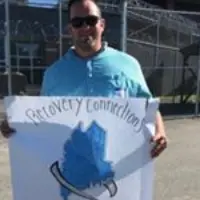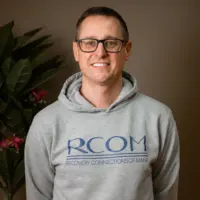About Recovery Connections of Maine
One encouraging part of the outpatient and residential treatment programs is that the center believes in unconditional positive regard. This means all patients are treated equally regardless of unpleasant histories or criminal charges.
The residential treatment program only treats men and the duration of the program is six months. The facility has space for 20 people and during your time, you will undergo individual mental health and substance abuse counseling alongside daily group meetings, psychiatric services, and medication-assisted treatment if needed.
The residential treatment program is intensive and has three phases: stabilization, preparing an individual for transitioning to vocational and life skills training and helping with integration into the community.
You can expect the Matrix Model of treatment with the intensive outpatient program. You will receive treatment up to three hours a day, five days a week. The program will give you access to alternative expression, art, and bio-psycho educational lectures. You will also undergo weekly check-ins, which many patients like because they help ensure their recovery needs are met.
The outpatient program at this center strives to offer a supportive, caring, and accountable environment that fosters long term sobriety and assists individuals with understanding their lives and why living substance free is best.
Facility Overview
Latest Reviews
Rehab Score
Accepted Insurance

Other Forms of Payment
Private insurance refers to any kind of healthcare coverage that isn't from the state or federal government. This includes individual and family plans offered by an employer or purchased from the Insurance Marketplace. Every plan will have different requirements and out of pocket costs so be sure to get the full details before you start treatment.
Self-pay involves paying for treatment out of your own pocket. You can use savings or credit, get a personal loan, or receive help from family and friends to fund your treatment. If you don't have insurance or your insurance plan doesn't cover a specific program, self-pay can help ensure you still get the care you need.
Financial aid can take many forms. Centers may have grants or scholarships available to clients who meet eligibility requirements. Programs that receive SAMHSA grants may have financial aid available for those who need treatment as well. Grants and scholarships can help you pai for treatment without having to repay.
Medicare is a federal program that provides health insurance for those 65 and older. It also serves people under 65 with chronic and disabling health challenges. To use Medicare for addiction treatment you need to find a program that accepts Medicare and is in network with your plan. Out of pocket costs and preauthorization requirements vary, so always check with your provider.
Medicaid is a state based program that helps lower-income individuals and families pay for healthcare. Medicaid covers addiction treatment so those enrolled can use their coverage to pay for rehab. When a program accepts Medicaid the client often pays very little or nothing out of their own pocket.
Addiction Treatments
Levels of Care
Outpatient Programs (OP) are for those seeking mental rehab or drug rehab, but who also stay at home every night. The main difference between outpatient treatment (OP) and intensive outpatient treatment (IOP) lies in the amount of hours the patient spends at the facility. Most of the time an outpatient program is designed for someone who has completed an inpatient stay and is looking to continue their growth in recovery. Outpatient is not meant to be the starting point, it is commonly referred to as aftercare.
Intensive outpatient programs (IOP) enable clients to remain in or return to their community while receiving high-level treatment. Most rehabs offering intensive outpatient treatment require clients to commit to a minimum of nine therapeutic hours per week, though clients who need more robust care often receive up to 20 hours of service weekly. Treatment modalities vary, but generally include psychotherapy, recovery education, evidence-based holistic therapies, and medication assisted treatment (MAT) for alcohol and/or opioid addiction.
Rehab aftercare programs facilitate continuity of care for clients transitioning out of inpatient treatment. In addition to outpatient counseling, recovery education, and other forms of care, services typically include peer coaching, relapse prevention, career counseling, and 12 step program induction. Clients often continue to receive support after being discharged from formal outpatient treatment. Case managers and care teams may provide medical, mental health, and social service referrals as a part of the clients' rehab aftercare service plan.
The best time for a drug intervention in Maine is when you think a loved one needs help with substance use and they are not seeking it. A drug intervention is an organized effort to confront them and share how their behavior has affected those around them. Intervention services can provide an intervention specialist to walk you through this process.
Medical detox is the process of removing addictive substances from your body while under medical supervision. Quitting alcohol and drugs on your own can cause uncomfortable and even dangerous side effects. In a medically supervised detox, licensed medical professionals monitor you 24/7 to help keep you as safe and comfortable as possible. The process is highly individualized to fit your specific needs, but the medical detox generally takes 5-7 days.
Clinical Services
Cognitive behavioral therapy in Maine is a form of talk therapy. It involves a limited number of sessions during which the therapist helps the client become aware of negative thinking and replace it with positive thought patterns. This in turn helps the individual respond to challenges in healthier ways.
Dialectical behavior therapy in Maine helps you challenge distorted thinking so you can develop better patterns of thoughts and behaviors. It incorporates many of the same methods as cognitive behavioral therapy, with an additional focus on intense emotions.
Men and women in Maine who participate in group therapy sessions find it builds a sense of community among the participants. Group therapy is usually facilitated by trained therapists who incorporate evidence based techniques that promote recovery and lasting change.
Individual therapy offers personalized sessions for drug and alcohol addiction treatment to help uncover and address the root causes of addictive behavior. Your therapist will provide individualized, one on one support to help you build resilience and develop healthier habits with a focus on long term sobriety.
The goal of motivational interviewing in Maine is twofold. First is to increase your motivation to change. Second is to help you make a commitment to change. The process involves allowing you to express your views and concerns out loud. The therapist will listen affirm and encourage you to make the changes you desire in your life.
The goal of trauma therapy is to help you process and heal from experiencing or witnessing traumatic events. Your therapist helps you to integrate the experience coherently and then explores the emotions and situations that trigger your responses. This helps you heal and reduces your symptoms.
Couples in Maine may seek couples therapy to develop skills that will strengthen their relationship. As they learn how to manage challenges and conflict, these skills help with current and future issues.
The therapist engaged in family therapy work with all family members to understand the impact addiction has had on the family unit and individual members. They help develop collective strategies for recovery and facilitate open discussions to help families build resilience and improve interactions. This helps to support their loved one's path to recovery.
Amenities
-
Private Transportation
-
Residential Setting
-
Private Rooms
Staff & Accreditations
Staff

Jeremy Hiltz, LADC, CCS
Founder / CEO / Counselor

Michael Connors, LADC, CCS
Clinical Supervisor

River Banks, LADC
Counselor

Chantel St. Laurent, LADC
Counselor

Rebecka Hendry, LCPC-c, CADC
Mental Health Counselor

Victor Dumais
Executive DirectorLCPC, LADC, CCS

James Skelton, LCSW, LADC, CCS
Clinical Director

Ashley Lauze
Program Manager
Accreditations

State Licenses are permits issued by government agencies that allow rehab organizations to conduct business legally within a certain geographical area. Typically, the kind of program a rehab facility offers, along with its physical location, determines which licenses are required to operate legally.
State License: Maine
Contact Information
103 Park St
Lewiston, ME 04240